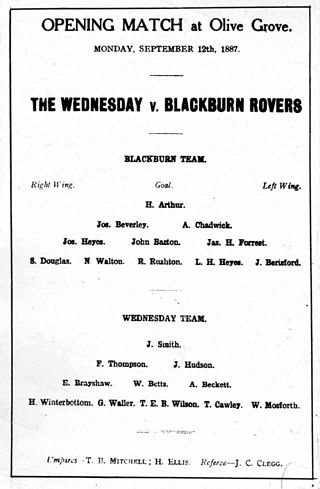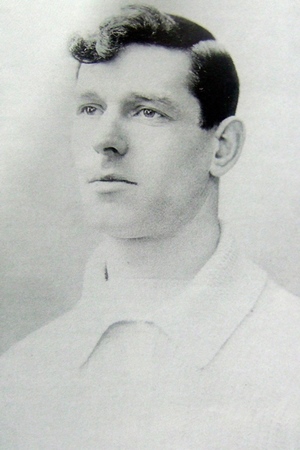Related Research Articles

Sir Robert William Robson was an English footballer and football manager. His career included periods playing for and later managing the England national team and being a UEFA Cup-winning manager at Ipswich Town.

Ian Edward Wright is an English television and radio personality and former professional footballer.

Sir Alfred Ernest Ramsey was an English football player and manager. As a player, he represented the England national team and captained the side, but he is best known for his time as England manager from 1963 to 1974, which included guiding them to victory in the 1966 FIFA World Cup. Knighted in 1967 in recognition of the World Cup win, Ramsey also managed his country to third place in the 1968 European Championship and the quarter-finals of the 1970 World Cup and the 1972 European Championship. As a player, Ramsey was a defender and a member of England's 1950 World Cup squad.

In the sport of association football, a midfielder is an outfield position which plays primarily in the middle of the pitch. Midfielders may play an exclusively defensive role, breaking up attacks, and are in that case known as defensive midfielders. As central midfielders often go across boundaries, with mobility and passing ability, they are often referred to as deep-lying midfielders, play-makers, box-to-box midfielders, or holding midfielders. There are also attacking midfielders with limited defensive assignments.

The Wales national football team represents Wales in men's international football. It is controlled by the Football Association of Wales (FAW), the governing body for football in Wales. They have been a member of FIFA since 1946 and a member of UEFA since 1954.

Jason Thorpe Robinson is an English former dual-code international rugby league and rugby union footballer who played in the 1990s and 2000s. Playing as a wing or fullback, he won 51 rugby union international caps for England and is the first black man to captain the England team. He was part of the 2003 World Cup winning rugby union England team.

In association football, the formation of a team refers to the position players take in relation to each other on a pitch. As association football is a fluid and fast-moving game, a player's position in a formation does not define their role as tightly as that of rugby player, nor are there breaks in play where the players must line up in formation. A player's position in a formation typically defines whether a player has a mostly defensive or attacking role, and whether they tend to play centrally or towards one side of the pitch.
Corinthian Football Club was an English amateur football club based in London between 1882 and 1939. Above all, the club is credited with having popularised football around the world, having promoted sportsmanship and fair play, and having championed the ideals of amateurism.

Robert Douglas Houghton is an English football manager and former player. His career has spanned over 30 years and 10 countries. He is most famous for taking Swedish club Malmö FF to the 1979 European Cup final, where they lost to Nottingham Forest.

Robert Paul Green is an English former professional footballer who played as a goalkeeper. He played in the Premier League and Football League and for the England national team.

Carlos Caetano Bledorn Verri, known as Dunga, is a Brazilian football manager and former professional player who played as a defensive midfielder. Under his captaincy, Brazil won the 1994 FIFA World Cup and he lifted the World Cup trophy. Along with Xavi, he is one of only two men to have played in a World Cup final, an Olympic final, a Confederations Cup final and a continental championship final. He was head coach of Brazil twice. In his first spell from 2006 to 2010, he led them to victory in the 2007 Copa América and the 2009 FIFA Confederations Cup, and to the quarter-finals of the 2010 FIFA World Cup, after which he was dismissed by the Brazilian Football Confederation. He was appointed in 2014 for a second time, but Brazil's early exit from the Copa América Centenario led to his dismissal in June 2016. He was also head coach of Internacional in 2013.

In association football, a bicycle kick, also known as an overhead kick or scissors kick, is an acrobatic strike where a player kicks an airborne ball rearward in midair. It is achieved by throwing the body backward up into the air and, before descending to the ground, making a shearing movement with the legs to get the ball-striking leg in front of the other. In most languages, the manoeuvre is named after either the cycling motion or the scissor motion that it resembles. Its complexity, and uncommon performance in competitive football matches, makes it one of association football's most celebrated skills.
Simon Darcy Clifford is an English football coach, pioneer, and a businessman most commonly known for introducing Brazilian training techniques into the UK with his Brazilian Soccer Schools, being the very first of their kind.
Paul John James is a retired professional soccer player who played as a midfielder. He was a one-time CONCACAF champion who represented Canada at both the Los Angeles 1984 Olympic Games and 1986 FIFA World Cup in Mexico. He later worked as a soccer analyst and soccer coach. He is an honoured member of the Canada Soccer Hall of Fame.

Charles Albert Williams was an English football goalkeeper and manager, who was the first goalkeeper known to have scored a goal in a first-class match.
Ben James Roberts is an English former professional footballer who played as a goalkeeper. Since being forced into early retirement in 2005 at the age of 29 through injury, he has become a goalkeeping coach. He is currently employed in this capacity at Chelsea.
Andrew Platt is an English former professional rugby league footballer who played as a prop and second-row forward in the 1980s and 1990s.
Thorold Charles Reep was a British analyst credited with creating the long ball game, which has characterised English football.
In association football, a long ball is a pass attempt that moves the ball a long distance on the field via one long aerial kick from either a goalkeeper or a defender directly to an attacking player, with the ball generally bypassing the midfield. Rather than arrive at the feet of the receiving attacking player, the attacker is expected to challenge the opposing defence in the air, with other attacking players and midfielders arriving to try and take possession of the ball if it breaks loose. It is a technique that can be especially effective for a team with either fast or tall strikers. The long ball technique is also a through pass from distance in an effort to get the ball by the defensive line and create a foot race between striker and defender. While often derided as either boring or primitive, it can prove effective where players or weather conditions suit this style; in particular, it is an effective counter-attacking style of play in which some defenders can be caught off-guard.
John Cartwright is an English former professional footballer who played as an inside forward. He later became a coach.
References
- 1 2 Football: Learning to live with football's bogeyman: Dave Hadfield lived next door to Charles Hughes - and survived Hadfield, David. The Independent. 13-08-94, Accessed 08-06-10
- ↑ Fox, Norman (28 November 1993). "Profile: The professor breaks cover: Charles Hughes". Independent . London. Retrieved 15 September 2010.
- ↑ "Maximum Opportunity". Theblizzard.co.uk. Retrieved 28 August 2019.
- ↑ Wilson, Jonathan; Auclair, Philippe; Smyth, Rob; Lowe, Sid; Macintosh, Iain; Montague, James; Hunter, Graham; Delaney, Miguel; Vickery, Tim; Levinsky, Sergio (3 March 2014). "The Blizzard - The Football Quarterly: Issue Twelve". Blizzard Media Ltd – via Google Books.
- ↑ Cox, Richard William; Russell, Dave; Vamplew, Wray (2002). Encyclopedia of British Football - Richard Cox - Google Books. p. 63. ISBN 9780714652498 . Retrieved 2 September 2012.
- ↑ Anthony, Strudwick (7 June 2016). Soccer Science. Human Kinetics. p. 566. ISBN 9781450496797 – via Google Books.
- ↑ Andrews, Ian (2013). "It's A Man's Game: English Football and Socio-Cultural Change" (PDF). etheses.lse.ac.uk. Retrieved 14 November 2019.
- ↑ "Grim Reep". When Saturday Comes . Archived from the original on 23 June 2012. Retrieved 15 September 2010.
- ↑ Robson, Bobby (2005). Farewell but not Goodbye . Hodder and Stoughton. ISBN 978-0-340-82346-0.
- ↑ Cartwright, John (23 March 2002). "The guru who is not afraid to upset the apple cart". The Daily Telegraph. London.[ dead link ]
- ↑ Lawton, James (12 November 2001). "England must develop the creative instinct". The Independent. London.
- ↑ Cartwright, John (25 November 2007). "England managers need direction". Daily Telegraph. London. Archived from the original on 26 November 2007.
- ↑ Stevenson, Jonathan (17 December 2007). "How will English football develop?". BBC.
- ↑ Hughes, Rob (24 November 1993). "Will the Bulldog's Fall Give Rise to a New Breed of English Soccer?". The New York Times . Retrieved 15 September 2010.
- ↑ Hughes, Rob (14 June 1995). "The New Boys From Brazil". The New York Times . Retrieved 15 September 2010.
- ↑ Kingstone, Steve (3 June 2005). "Brazil's coach in plagiarism row". BBC . Retrieved 15 September 2010.